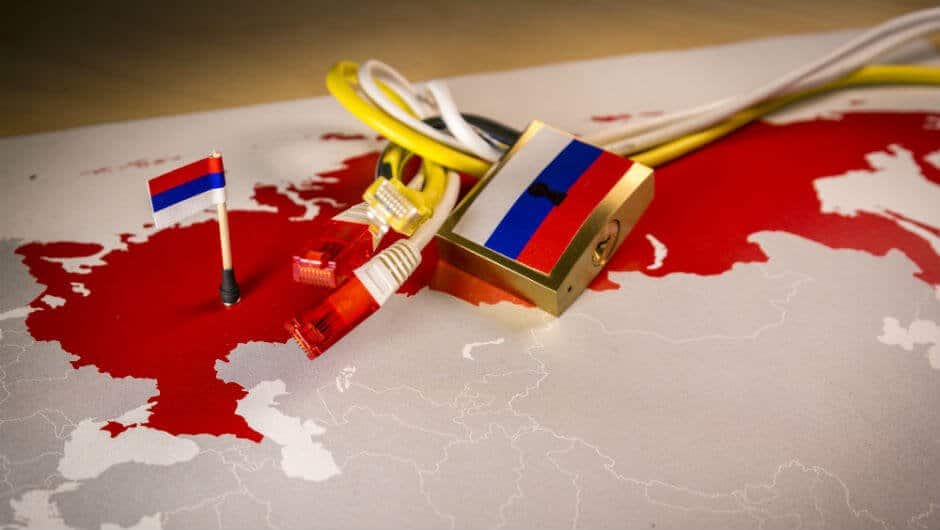Russia has just introduced a law to try to disconnect its Internet from the rest of the world.
Yesterday a controversial law entered into force in Russia which gives it the power to disconnect the Russian part of the Internet from the rest of the world. For experts, it is a terrible precedent that can lead to greater censorship on the net.
The Kremlin says the “Sovereign Internet” law, which President Vladimir Putin signed into law last May, is a security measure to protect Russia in the event of an emergency or foreign threat such as a cyber attack. The law will allow Moscow to tighten control over its Internet footprint by channeling web traffic through state-controlled infrastructure and creating a national domain name system.
In theory, the measure would allow Russia to manage its internal networks which could function independently of the rest of the Web.
Experts doubt that such a move is technically possible and say the law is an attempt by the Russian government to censor information online.
“To be able to manage the flow of information in their favor, they must have a system that can intercept it in advance”Said Sergey Sanovich from the Center for Information Technology Policy at Princeton University.
The protests
Thousands of demonstrators took to the streets to protest against the measure earlier this year to try to prevent its adoption. Human rights advocates are certain that the law is a clear threat to freedom of speech and information.
“This law purports to provide a legal basis for mass surveillance across the Russian internet”he said Human Rights Watch in a post on his official blog.
Doubts about success
However, creating an “online iron curtain” is not as easy as it seems. Putin has already taken a number of other steps to try to curb online freedoms, such as banning the Telegram encrypted messaging service, but many of these attempts have proven unsuccessful.
The difficulty in “unplugging” its internet is that unlike China's Great Firewall, which was built on a narrow concentration of state-run network operators, Russia has allowed its internet to develop freely over the past three decades. Canceling global network connections is a rather arduous operation.
The practical application of the law will end up making the Internet more unreliable for Russian users, but beyond this the signal is really bad.
Last June I told you about “Splinternet,” the silent process that could make the global network a “stew” of local Internets.


